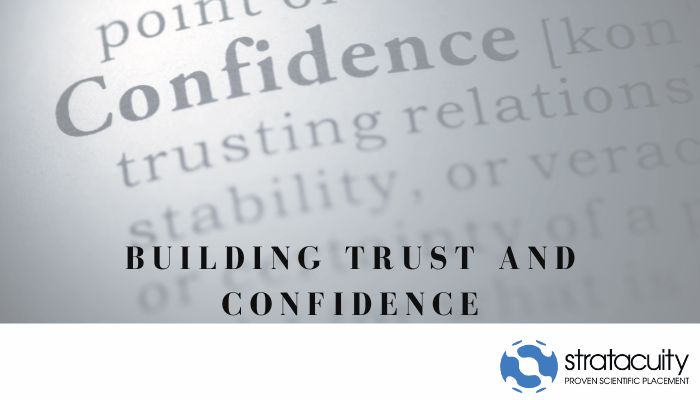You landed a new role and feeling unsure about your next steps? There’s no need to worry; we’re here to guide you through this exciting phase.
First and foremost, determine whose trust you aim to earn—be it your manager, colleagues, or clients. Establishing a routine of regular interactions is key to fostering these crucial relationships. The interplay between trust and confidence is vital; each fuels the growth of the other. Trust is cultivated through developing familiarity, rapport, and friendships, which, in turn, bolsters confidence. Conversely, demonstrating competence in your role enhances trust, thereby reinforcing this cycle of confidence and trust. Moreover, this ongoing process contributes to your personal growth in confidence.
Consider the following elements to build rapport effectively:
- Proximity: Being physically near those you wish to connect with is fundamental for fostering familiarity.
- Frequency: Regular interactions, whether they’re weekly, bi-weekly, or monthly check-ins, are crucial for developing a bond.
- Duration: Alongside frequency, extend the time spent with these individuals to deepen connections.
- Intensity: Aim to move beyond surface-level conversations. Engage in open and meaningful dialogues.
Avoid Overcommitting
Diving into new roles can tempt us to take on too much, but failing to meet commitments can erode trust quickly. To prevent this, practice self-evaluation and set realistic expectations for yourself by considering:
- The feasibility of what you’ve agreed to.
- Potential adjustments to honor your commitments.
- Areas for personal improvement and skill enhancement, including body language, which plays a significant role in building trust.
Being mindful of your capabilities and learning to say “yes,” “not now,” or “no thanks,” with integrity, is vital. It’s alright to decline or postpone requests—just ensure to communicate your reasons clearly. This approach demonstrates your commitment to fulfilling promises when realistically possible.
Navigate Office Dynamics Wisely
While fitting in is important, steer clear of office gossip, which can undermine trust and harm your professional reputation. If you find yourself in such situations, gracefully excuse yourself to maintain integrity and trustworthiness within your team.
Engaging with your team doesn’t require participating in gossip. Instead, focus on collaborative efforts and genuinely getting to know your colleagues to build healthy, productive relationships.
In summary, balancing trust and confidence is a dynamic process. Should you find yourself being overly critical, use a moment each week, possibly during a Friday reflection period, to acknowledge your accomplishments and contributions. Such regular self-assessment is not only uplifting but also an effective way to cultivate confidence and conclude your week on a positive note.

